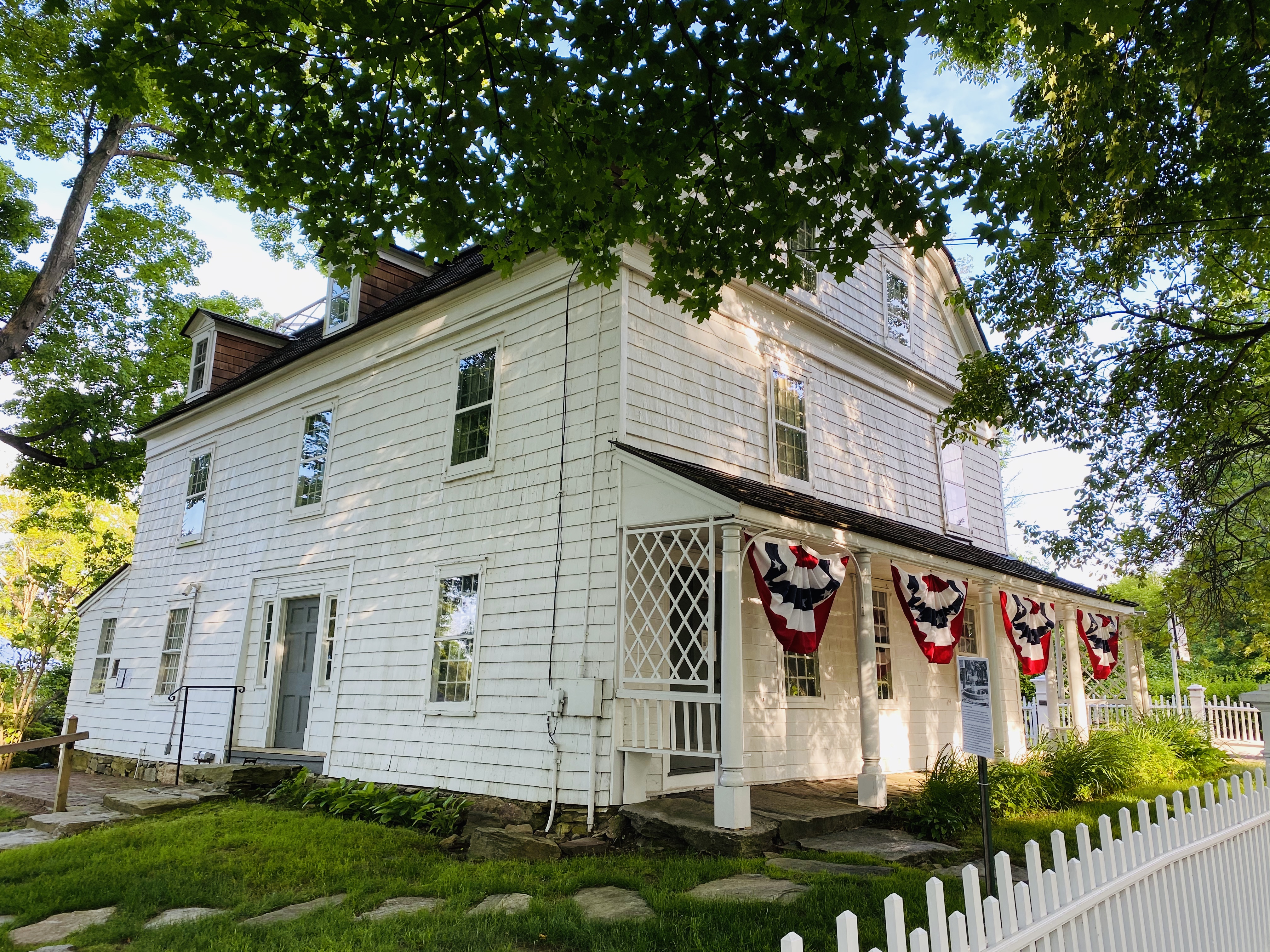
Welcome to the sixth installment of Keeler Tavern Museum & History Center’s monthly column! Throughout 2024, we’ll be focusing on our preparations for America250 – the 250th anniversary of the Declaration of Independence – and giving readers a behind-the-scenes look at how our museum is approaching community collaborations, storytelling, and public programming leading up to this important date.
America250 is a major milestone with practically endless ways for history organizations and the public to commemorate it. In order to focus, KTM&HC is honing in on two themes identified by the American Association for State and Local History (AASLH). Last month we explored the first theme, “We the People,” and this month, it’s all about the second: “American Experiment.”
The “American Experiment” theme focuses on civics: acknowledging how our nation is always a work in progress and how we have a responsibility to participate in its evolution. In their definition, AASLH points out that the leaders of the founding era knew their nation was an experiment, and they “expected future generations to improve upon the republic they created.” The task for history organizations, then, is to encourage “discussion about our democracy and civic institutions” in order to “help strengthen understanding, inspire action, and reveal ways that all of us can participate in and shape the ongoing American experiment.” In a recent newsletter from AASLH, educator Sarah Jencks puts an even finer point on this by identifying how museums can create civic strategies: “being a civic institution doesn’t just mean teaching civic knowledge, like the three branches of government and the importance of voting, but also civic skills and civic dispositions or mindsets, to use the language of civic philosopher Danielle Allen.” Civic skills, dispositions, and mindsets can be things like exchanging ideas, collaboration, empathy, imagination, critical thinking. The development of these skills, dispositions, and mindsets are where KTM&HC is doing great work – for America250 and in general.
Exchanging ideas. Our public programs, with varying topics throughout the year, provide space for folks to listen, learn, ask questions, and share experiences. Recently, audiences gathered for Cheyney McKnight’s “Designing the Black American Cultural Costume,” where she and audience members discussed the importance of clothing, culture, tradition, and innovation. And coming soon, our “Revolutionary Perspectives” speaker series starts up again – specifically designed to get people thinking about the historical context, historical legacies, and themes of A250.
Critical thinking and empathy. Our newest tour, “Creating Community,” asks visitors to think about the ways people live together, and how folks in the early 20th century – and today – navigate different priorities for the common good. Through storytelling – interpreters sharing stories of former site residents and visitors sharing their personal stories of family, work, immigration, and more – we explore questions like: How do different experiences contribute to what we want to see happen in the places where we live?
Collaboration. At our July 4th Celebration earlier this month – and annually – we collaborated with local musicians, businesses, and volunteers to demonstrate the importance of community and the power of cultivating shared experiences. Hundreds of local residents gathered to mark the holiday, exploring the colonial-era section of our museum, participating in fun activities, listening to music, and hearing the Declaration of Independence read.
What’s next?
Stay tuned! Next month, our column will focus on one of the specific initiatives we’ve created for A250: our “Revolutionary Perspectives” speaker series. In the meantime, if you’re looking to learn more about our museum and site history, head to www.keelertavernmuseum.org.